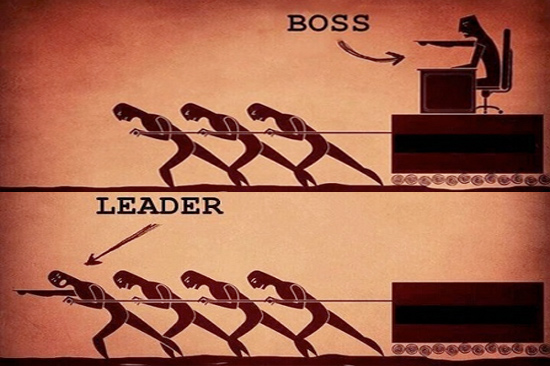I am not a nice guy and never really been one. To be perfectly honest, most people who don’t know me would say I am a total asshole. Not that it has merit but that’s what they perceive and holds true to a degree. I like being this way, and it has gotten me very far in life to not be a nice guy. Its gotten me further than all my nicer friends. I learned very early on that being nice wasn’t the best approach to life but rather being fair was.
In my earlier years, I was in Corporate America and it was then that I learned about being a fair leader, and how being fair earned respect while being nice meant poor performance. I want to teach you about what makes a fair leader and how to make it an advantage for you as I have done for myself, even through my entrepreneurial journey.
Being a fair leader means understanding a fundamental component of leadership, no matter if what realm it is exercised in. That component is balance. Balance is the key to fair leadership and can be exercised in these four manners in order to make you a better and more effective leader.
1. Being fair doesn’t mean being selfish: As a matter of fact, it’s the exact opposite of it. Being nice is sometimes hurtful to your followers, employees, or those that pledge their loyalty to you. While they enjoy your company, your forever-kind attitude can keep them from pushing themselves to new grounds, learning new skills, and accepting criticism better. Being fair is about caring, but yet still making business conscious decisions that help drive the vision forward.
2. Being fair means learning to say NO: While we all want to please our supervisors, partners, or simply make our employees happy; being fair requires you to learn to deny certain requests and say no to others. The value of declining something only increases the value of you agreeing with something else. That said, people become appreciative of your decisions and understand you could have chosen to say no, and yet said yes.
3. Fairness requires self-awareness and honesty with yourself: Giving someone a nice assessment of their performance or sugar coating the truth will only further that person’s ability from growing, learning, or improving. It will even further their understanding of your decision-making skills and create doubt, instead of trust. Nice leaders tend to focus on good feedback, rather than constructive feedback and are often very afraid of confrontation. Being fair means being honest with yourself and those you lead. It means being able to put yourself in an uneasy situation in order to help foster an environment of growth. This is one of the leading problems in corporate America where too many scared leaders who believe being nice will prevent HR complaint. Think about the negative impact it has on someone when you tell them their performance is great and yet, they are not good enough for a promotion. This conflict creates doubt. Don’t be nice, be fair.
4. Being fair is about recognizing when you are wrong: Nice leaders tend to focus a lot on shadowing their shortfalls and therefore come across as nice and knowledgeable even when they are not. This lack of transparency and display of no vulnerability creates a disconnect from other followers who may praise you but only for so long when they realize the lack of substance. Think about a professional sports coach, and how they don’t pretend to be better then the players but yet still earn respect despite their inability to exercise the same level of physical endurance. Being fair is about allowing others to know that they can help you grow as much as complement your shortfalls.
Nice guys and nice leaders alike never win simply because the value of their words and the power of their existence is minimized by their constant agreement with other people. Instead, being fair means to be balanced and to showcase that balance. This can work in leadership, entrepreneurship or simply in relationships with people.
